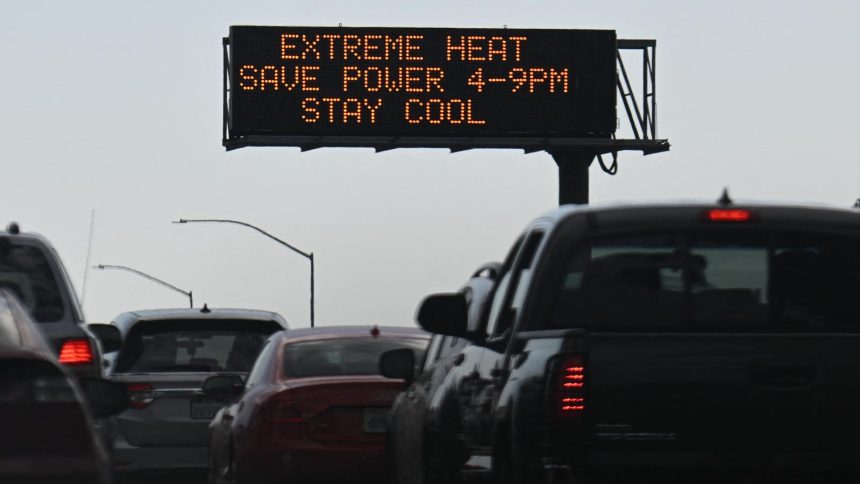Climate change poses a significant financial risk to businesses, with companies potentially losing up to 7% of their earnings annually by 2035 if they fail to adapt to climate hazards. This financial impact is comparable to experiencing a COVID-19-level economic downturn every two years. Since 2000, climate-related disasters have already caused over $3.6 trillion in damages, and this trend is accelerating. By 2035, extreme heat and other climate-related events are projected to inflict between $560 billion and $610 billion in annual fixed asset losses on publicly traded companies, particularly those in the telecommunications, utility, and energy sectors. However, there’s a substantial economic opportunity in proactively addressing climate change through decarbonization and adaptation. The green market is projected to grow from $5 trillion currently to $14 trillion by 2030, and businesses that act early will be best positioned to capitalize on this expanding market.
One potential solution to address both the housing crisis and the impacts of climate change is the construction of factory-built apartment complexes. These modular buildings offer advantages in terms of efficiency, cost, and resilience. Steel magnate Barry Zekelman has invested heavily in this approach, building a factory in Arizona where steel components are assembled into apartment modules. This method allows for construction in a controlled, air-conditioned environment, offering significant advantages over traditional on-site building, especially in regions with extreme heat. While there have been high-profile failures in the modular construction industry, the potential benefits have attracted major real estate developers. Zekelman believes factory-built homes can be produced faster and more affordably, offering superior energy efficiency, and providing greater resistance to storms and fires compared to traditional wood-frame construction.
Zekelman’s modular construction method leverages steel’s inherent properties to create more durable and climate-resilient buildings. The enhanced insulation of steel structures contributes to better heating and cooling efficiency, a crucial factor in regions experiencing extreme temperatures. Additionally, the inherent fire resistance of steel offers a significant advantage in wildfire-prone areas. This durability translates to lower insurance costs and potentially higher property values over time, making these structures an attractive option for both developers and residents. Zekelman’s approach showcases how innovative construction techniques can address both the housing shortage and the challenges posed by climate change.
The potential return of a Trump administration raises concerns about the future of clean energy policies and the role of China in the global transition. David Brown, director of Wood Mackenzie’s energy transition team, suggests that even if the U.S. retreats from its current clean energy trajectory, China will likely maintain its focus on becoming a global leader in low-carbon technologies. This could lead to China consolidating its position in key markets in Southeast Asia, Europe, and Africa. However, a prolonged trade war with increased tariffs targeting China’s supply chain could stimulate domestic production of clean energy technologies in the United States, potentially shifting the long-term balance of power in the industry.
While there’s speculation that a second Trump administration might weaken or eliminate the Inflation Reduction Act (IRA), Brown posits that support for the IRA’s clean energy provisions may persist due to the economic benefits it provides, particularly in Republican-controlled states. However, challenges to certain aspects of the IRA are anticipated, potentially slowing down investments in clean energy. A key factor will be how the Trump administration addresses the growing demand for power in the U.S. economy. The need for reliable power sources could drive investment in renewables and nuclear energy, especially if coal-fired power plants are phased out.
Further readings highlight a range of ongoing issues related to sustainable development, including legal challenges faced by fertilizer companies whose products harm farmland, the US Department of Energy’s efforts to disburse cleantech funding, the potential cancellation of the electric mail truck contract by the USPS, and the impact of cheaper lithium on battery prices. Other significant topics include the endangered species listing of the monarch butterfly, Supreme Court decisions affecting environmental reviews, and the challenges faced by the world’s largest offshore wind company. These diverse stories underscore the complex interplay of environmental, economic, and political factors shaping the future of sustainability. The potential resurgence of a Trump administration adds another layer of complexity, with its potential impact on clean energy policy and international relations in the context of climate change.



